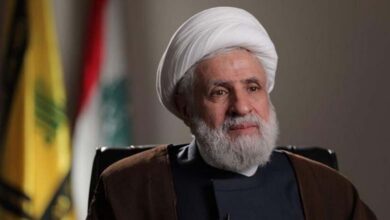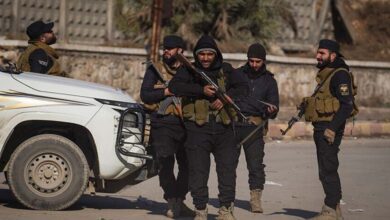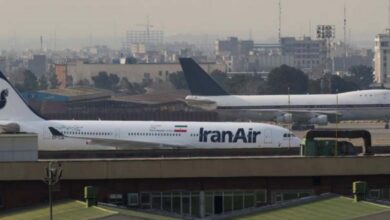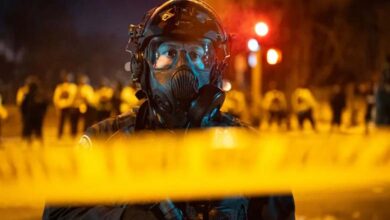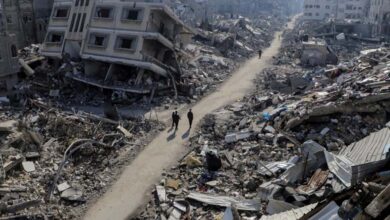“ISIS’ ticking time bomb” threatens the Middle East with chaos… Details
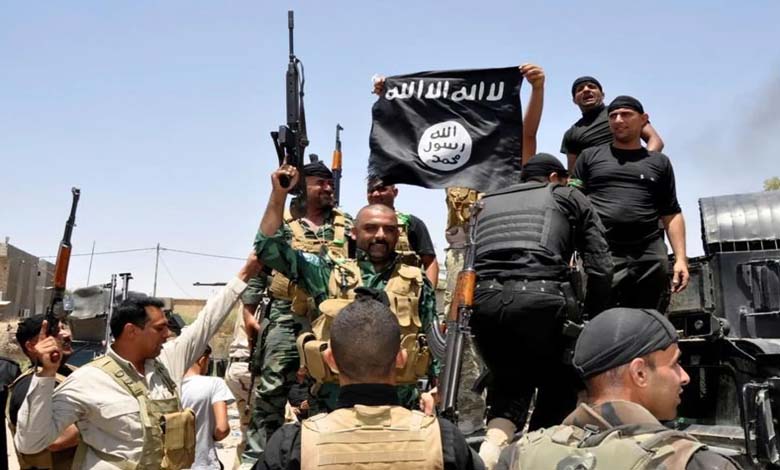
The British newspaper The Telegraph has warned of an “ISIS ticking time bomb” threatening to plunge the Middle East into chaos. This in-depth analysis by journalist Liz Cookman, reporting from Hasakah in northeastern Syria, sheds light on the persistent dangers posed by the terrorist organization.
-
France Fights ISIS in Syria: Strikes on “Specific Targets”
-
The forest fires crisis in Syria threatens the fate of farmers
Liz Cookman visited the Al-Hol camp, which houses the families of ISIS fighters and is guarded by the predominantly Kurdish-led Syrian Democratic Forces (SDF). She describes the camp’s residents as “the largest remaining gathering of the bloody caliphate once ruled by ISIS.”
She relays serious warnings that Al-Hol, along with smaller camps like Roj in the north and various unknown prisons holding thousands of “ISIS loyalists,” is on the brink of collapse, while the group remains “bloodthirsty.” These revelations were reported by the BBC, citing The Telegraph.
-
The European Union warns of the danger of ISIS in Syria and Iraq
-
How ISIS Fighters in Northern Syria Could Benefit from Turkey’s Ambitions
Since ISIS’ downfall six years ago, no foreign government has found a long-term solution to the security challenges and the risk of the group’s resurgence, despite the fact that several of their citizens, including Britons, are among those detained in these camps.
It is estimated that around 20 British women, 40 children, and 10 men who had joined ISIS are currently held there.
The newspaper’s analysis highlights that fears of ISIS’ resurgence have grown recently, as Syria enters a new phase of “uncertainty” following Bashar al-Assad’s downfall. Additionally, there are warnings about possible jailbreaks of “ISIS terrorists” detained in northeastern Syria, exacerbated by Donald Trump’s cuts to foreign aid.
-
ISIS Awakens in Syria: The Organization Awaits the Perfect Moment to Return to the Global Stage
-
Neutralization of several leaders of ISIS and Al-Qaeda organizations in Syria… Details
The U.S. temporarily halted funding for the SDF for several days, leading to local guards failing to report for duty. On Monday, the State Department restored the funding for a temporary two-week period, but it remains unclear what will happen once this measure expires.
According to Charles Lister, director of the Counterterrorism and Extremism Program at the Middle East Institute, “This threat cannot be taken lightly… This is the largest number of imprisoned terrorists anywhere in the world, and ISIS remains committed to orchestrating mass prison breaks.”
Khaled Ibrahim, an official in the de facto autonomous administration of northeastern Syria, describes the region’s detention facilities as “ticking time bombs.”
-
Betting on a “Breath of Life”… U.S. Officials Warn of ISIS’s Return in Syria
-
Anticipated Saudi Role in Syria through Resolution of Constitutional Committee Crisis
The article notes that many countries, particularly in Europe, have been reluctant to repatriate their citizens, as some leaders consider it “political suicide,” fearing increased extremism and a lack of battlefield evidence to prosecute terrorism suspects.
Another significant challenge is Turkey, which views the SDF as allies of the Kurdistan Workers’ Party (PKK), a separatist organization that has waged a decades-long insurgency against the Turkish state.
Ankara also supports several rebel groups that contributed to the overthrow of Assad’s authoritarian regime and maintains ties with Hayat Tahrir al-Sham (HTS), further strengthening “Turkey’s influence and leverage over Syria’s future.”
-
SDF Fights Syrian Army, Calls on Coalition to Combat ISIS
-
Did ISIS transfer its Base from Syria to Turkey?!
Despite its growing influence, some members of the upcoming U.S. administration have threatened to impose sanctions on Turkey over its attacks in northeastern Syria, arguing that they jeopardize the primary mission of preventing ISIS’ return.
The article concludes that the current situation is “unstable,” and no clear solution appears to be on the horizon.


